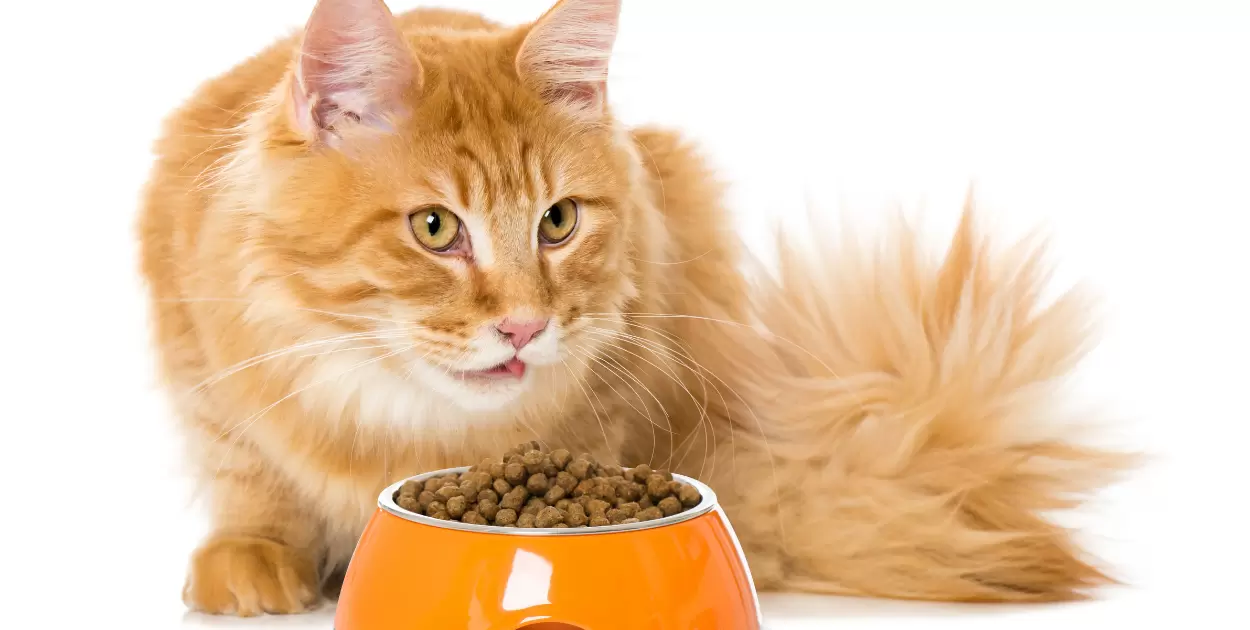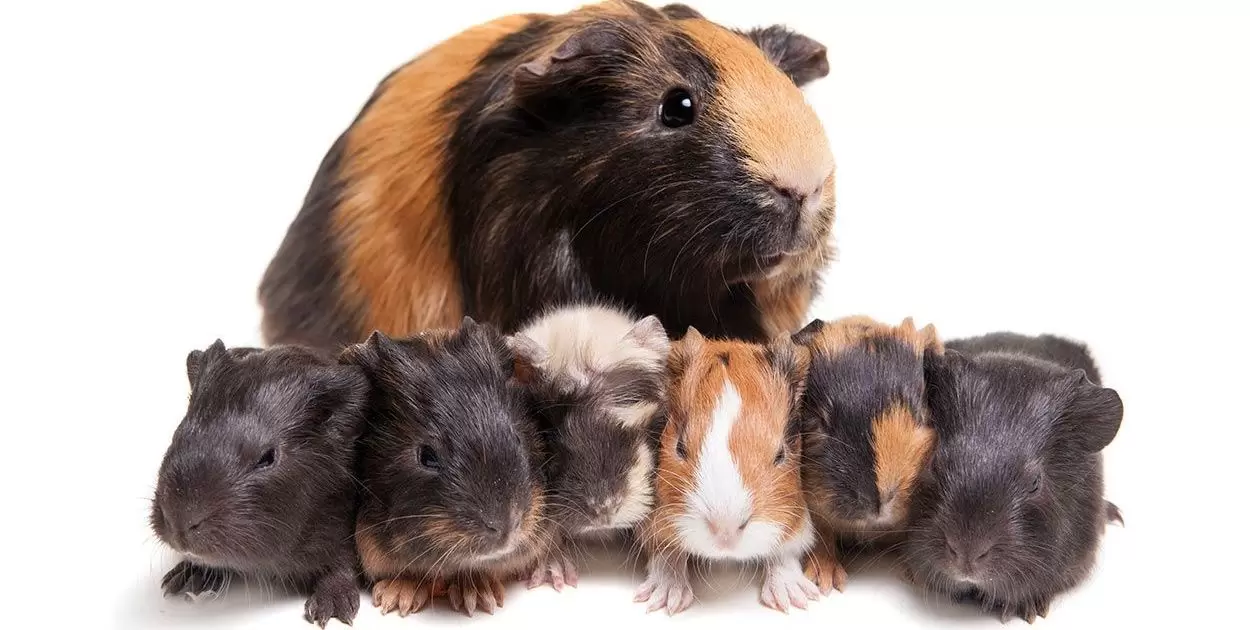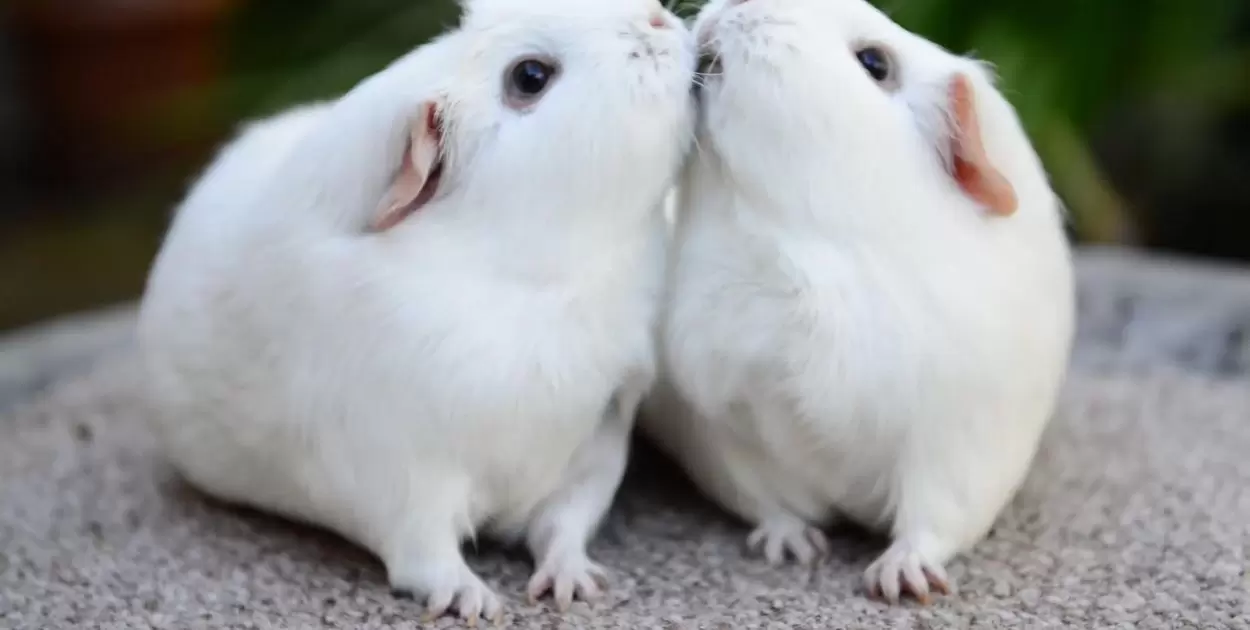Guinea pigs are small herbivorous rodents that should not be fed cat food as it lacks essential nutrients for their well-being. Cat food is formulated for carnivores and may lead to nutritional deficiencies and health issues in guinea pigs if consumed regularly.
Curious about the dietary needs of your adorable guinea pig? Wondering Can guinea pigs eat cat food Discover the essential facts to ensure your furry friend stays healthy and happy. Dive into the dos and don’ts of guinea pig nutrition – your pet will thank you for it!
Guinea pigs should not eat cat food as it lacks the specific nutrients they require. Cat food is designed for carnivores, and guinea pigs need a diet rich in hay, vegetables, and pellets to maintain their health. Feeding them cat food can lead to nutritional imbalances and potential health issues.
What Can Guinea Pigs Eat Daily
Guinea pigs thrive on a daily diet consisting of fresh hay, which should make up the majority of their food intake. This high-fiber hay promotes healthy digestion and keeps their teeth in check.
Pellets specifically formulated for guinea pigs can supplement their diet, offering necessary nutrients. However, avoid overfeeding pellets, as they should be a complement rather than a primary food source. Always ensure a fresh and clean water supply for your guinea pig to stay hydrated.
Nutritional Needs of Guinea Pigs
Guinea pigs have specific nutritional needs crucial for their well-being. They thrive on a diet consisting mainly of fresh hay, providing essential fiber for digestion. Incorporating a variety of vegetables and high-quality pellets ensures they receive the necessary vitamins and minerals, contributing to their overall health.
Owners play a pivotal role in meeting guinea pigs’ nutritional requirements. Regularly offering a balanced diet, along with access to fresh water, helps prevent health issues and promotes a happy, active life for these delightful pets. Understanding and fulfilling their nutritional needs is key to ensuring the vitality and longevity of guinea pigs in our care.
What Is Dry Cat Food?

Dry cat food is a type of cat food that comes in a crunchy, dry form. It contains essential nutrients like proteins and vitamins that contribute to a cat’s overall health. People choose dry cat food for its convenience, as it can be stored easily and doesn’t spoil quickly.
Manufacturers produce dry cat food by combining ingredients like meat, grains, and vegetables. Cats often enjoy the crunchiness of dry food, and it helps to keep their teeth clean. Many cat owners find dry cat food to be a practical and balanced option for their feline companions, providing the necessary nutrition in a convenient and palatable form.
Ingredients in Cat Food
Cat food contains various ingredients to provide essential nutrients for your feline friend. Common components include meat, such as chicken or fish, to supply the necessary protein for muscle development.
Other vital elements found in cat food are vitamins and minerals, ensuring your cat receives a well-balanced diet. These ingredients work together to support your pet’s overall health and well-being.
Can Guinea Pigs Eat Dog Food
Guinea pigs should not eat dog food because it lacks essential nutrients they need. Dog food is formulated for the dietary needs of dogs, not guinea pigs. Feeding guinea pigs a diet designed for their specific requirements, such as hay, fresh vegetables, and pellets, is crucial for their well-being.
While dogs and guinea pigs have different nutritional needs, providing guinea pigs with a balanced diet ensures their health and happiness. Always choose food options specifically designed for guinea pigs to meet their unique dietary requirements and promote their overall vitality.
Difference Between Cat And Guinea Pig Food
Here’s a table highlighting the differences between cat and guinea pig food:
| Feature | Cat Food | Guinea Pig Food |
| Primary Diet | Carnivorous – meat-based diet | Herbivorous – primarily hay and vegetables |
| Protein Source | Animal proteins (meat or fish) | Plant-based proteins (alfalfa, timothy hay) |
| Nutritional Needs | High protein and fat; taurine is essential | High fiber; vitamin C is essential |
| Fiber Content | Lower fiber content | Higher fiber content, crucial for digestion |
| Vitamin C Requirement | Not required; synthesized internally | Essential; guinea pigs cannot produce it |
| Calcium Content | Moderate to low | Higher levels for bone and teeth health |
| Feeding Schedule | Typically fed 1-2 times a day | Constant access to hay, supplemented with veggies |
| Special Considerations | Avoid grains, fillers, and excess carbohydrates | Avoid high-calcium vegetables (e.g., kale) |
| Treats | Catnip or specific cat treats | Limited fruits, avoid sugary treats |
It’s important to note that providing the right nutrition for each pet is essential for their overall health. Always consult with a veterinarian to ensure that the chosen diet meets the specific needs of your cat or guinea pig.
Potential Risks for Guinea Pigs
Guinea pigs face potential risks that owners should be aware of to ensure their well-being. One common concern is a vitamin C deficiency, as guinea pigs cannot produce it themselves. Owners need to provide a diet rich in vitamin C sources, like fresh vegetables, to prevent health issues.
Another risk is dental problems caused by inadequate wear on their continuously growing teeth. Ensuring access to hay helps them grind down their teeth naturally. Regular vet check-ups and a balanced diet are crucial in addressing and preventing these potential risks for guinea pigs.
Feeding Baby Guinea Pigs Cat Food

Feeding baby guinea pigs cat food is not recommended. Cat food is designed for carnivores, while guinea pigs are herbivores. Guinea pig babies require a diet rich in hay and fresh vegetables to ensure proper growth and development.
If you are unsure about what to feed your baby guinea pigs, consult with a veterinarian for guidance. They can recommend a suitable diet to meet the specific nutritional requirements of young guinea pigs, helping them thrive and stay healthy.
Protein Requirements for Guinea Pigs
Guinea pigs need a diet rich in protein for their overall well-being. They primarily obtain protein from hay, vegetables, and specially formulated pellets. Ensuring a balanced protein intake is crucial to support their growth, maintain muscle health, and keep their fur shiny.
Unlike some animals, guinea pigs cannot produce their own vitamin C, so it’s essential to include foods like bell peppers and leafy greens in their diet. These not only contribute to their protein intake but also supply the necessary vitamin C for a healthy and happy guinea pig.
What Vegetables Can Guinea Pigs Not Eat
Guinea pigs cannot eat certain vegetables, including onions and garlic, as they can cause digestive issues and discomfort for these small pets. High-oxalate vegetables like spinach and kale should also be avoided because they can lead to kidney stones in guinea pigs.
It’s crucial to be mindful of the food you offer to guinea pigs to ensure their well-being. While providing a balanced diet is essential, some precautions are necessary. Birds eat cat food, so it’s important to keep cat food away from guinea pigs as it may not meet their specific dietary needs. Additionally, avoid feeding guinea pigs vegetables high in calcium, such as rhubarb and parsley, as excess calcium can contribute to urinary problems.
Fats and Oils in Cat Food
Cat food often contains fats and oils. These ingredients contribute to a cat’s overall health by providing essential fatty acids. These acids support the cat’s skin, coat, and help with nutrient absorption.
It’s crucial to choose cat food with quality fats and oils. Look for options rich in omega-3 and omega-6 fatty acids, as they play a vital role in maintaining your cat’s well-being. Always check the product labels to ensure your cat gets the necessary fats for a healthy and shiny coat.
Can Your Guinea Pig Get Sick From Eating Cat Food?
Guinea pigs should not eat cat food because it’s not suitable for them. Cat food lacks essential nutrients that guinea pigs need for their well-being. Feeding them a proper guinea pig diet with hay, fresh veggies, and pellets is crucial to prevent health issues.
If a guinea pig consumes cat food regularly, it can lead to digestive problems and nutritional deficiencies. It’s important to be aware of what’s safe for your guinea pig to eat and stick to a diet that meets their specific dietary requirements.
Common Additives in Cat Food
- Nutritional Enhancement: Common additives in cat food often include vitamins and minerals that enhance the overall nutritional value of the food. These additives ensure that your cat receives a balanced diet, promoting their health and well-being.
- Flavor and Palatability: Some additives are included to enhance the flavor of cat food, making it more appealing to your feline friend. This can be especially helpful if you have a picky eater, ensuring they enjoy their meals and get the necessary nutrients.
- Preservation: Additives like antioxidants and preservatives help extend the shelf life of cat food, keeping it fresh for a longer period. This ensures that the food remains safe and nutritious until it is consumed, minimizing waste and cost.
- Digestive Health: Fiber additives, such as prebiotics, can be included to support digestive health in cats. These ingredients promote a healthy gut microbiome, aiding in the absorption of nutrients and contributing to optimal digestive function.
- Joint and Coat Support: Some cat foods contain additives like omega-3 fatty acids and glucosamine, which can benefit joint health and contribute to a shiny, healthy coat. These additives are particularly beneficial for older cats or those with specific health concerns.
Nutritional Benefits Of Feeding Guinea Pigs Cat Food
Guinea pigs thrive on a diet rich in specific nutrients, and cat food offers some benefits. It contains essential proteins that contribute to guinea pigs’ muscle development and overall health.
It’s crucial to note that cat food alone isn’t sufficient for guinea pigs. While it provides some nutrients, a balanced diet with hay, fresh vegetables, and guinea pig pellets is essential for their well-being.
Safe Alternatives for Guinea Pigs
Guinea pigs thrive on safe alternatives to ensure their well-being. Provide a cozy environment with appropriate bedding like hay or fleece liners. Opt for fresh vegetables like carrots and leafy greens to meet their nutritional needs.
Avoid using cedar or pine shavings for bedding, as these may harm their respiratory health. Choose a spacious cage with proper ventilation to allow them to explore safely. By opting for safe alternatives, you can ensure a happy and healthy life for your guinea pig.
Can Cats Eat Guinea Pig Food?
Cats should not eat guinea pig food. It lacks essential nutrients for feline health. Stick to cat-specific food to ensure your pet gets proper nutrition. Additionally, monitor your cat’s diet to prevent any health issues.
Guinea pig food is designed for guinea pigs, not cats. Feeding your cat the right food promotes their well-being and prevents potential health risks. Always consult your veterinarian for guidance on your cat’s diet to keep them healthy and happy.
Observing Guinea Pig Behavior
Guinea pig behavior offers insights into their well-being. They express joy through cheerful squeaks and lively hops. Observe their eating habits, social interactions, and overall activity level to gauge their happiness and health.
Noticing signs of stress or discomfort is crucial. If a guinea pig becomes unusually withdrawn or exhibits aggressive behavior, it may indicate a problem. Regularly spending time with your guinea pig and understanding their behavior helps build a strong bond and ensures their overall welfare.
Frequently Asked Question
What not to feed a guinea pig?
Avoid feeding guinea pigs foods like onions, garlic, iceberg lettuce, and dairy products.
Can guinea pigs eat chicken food?
Guinea pigs should not eat chicken food; it lacks the necessary nutrients for their health.
Do guinea pigs have a favorite food?
Yes, guinea pigs can have favorite foods, such as fresh vegetables and fruits.
Are guinea pigs allowed rice?
Guinea pigs can eat small amounts of cooked rice as an occasional treat.
Conclusion
It’s not recommended to regularly feed guinea pigs cat food. While they might nibble on it occasionally without harm, cat food lacks the specific nutrients that guinea pigs need for their optimal health. The digestive systems of guinea pigs and cats differ, and guinea pigs have specific dietary requirements, including a high intake of Vitamin C.
Providing a balanced guinea pig pellet or fresh vegetables is a more suitable option to ensure your furry friend receives the proper nutrition for their well-being. Always consult with a veterinarian to make informed decisions about your guinea pig’s diet, ensuring they lead a happy and healthy life.








